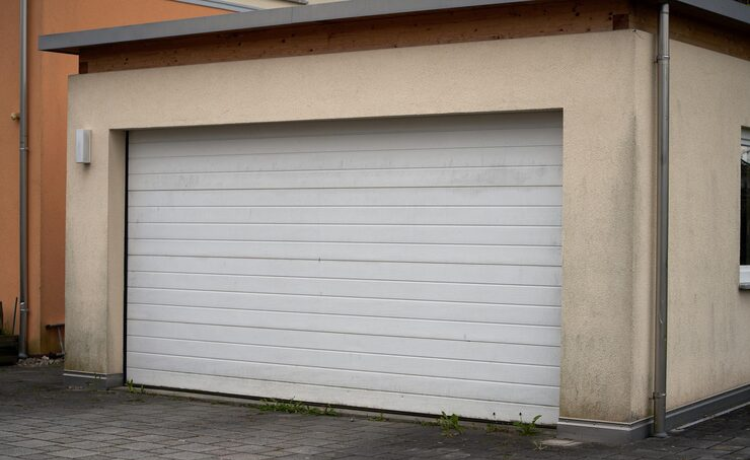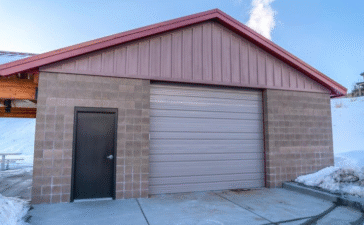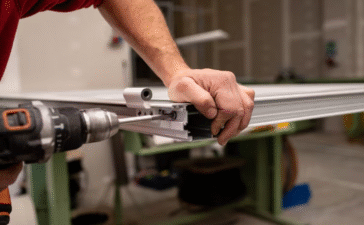Choosing the right garage door is a critical decision for any homeowner. It affects everything from your home’s curb appeal to its daily functionality. While color and style are important, one of the most crucial factors to consider is height. The right garage door height ensures your vehicles fit comfortably, your garage remains functional, and your home complies with local building codes. Selecting the wrong size can lead to frustrating clearance issues, damage to your vehicles, and costly modifications down the line. Whether you drive a compact car, a large SUV, or a tall truck, understanding the nuances of garage door dimensions is essential. This guide will walk you through everything you need to know about standard garage door height. We’ll cover the differences between common sizes, explain how to measure your space accurately, and provide practical advice to help you select the perfect door for your residential property. By the end, you’ll have the confidence to choose a garage door that meets your needs today and for years to come.
What Is the Standard Garage Door Height?
When discussing residential properties, the standard garage door height is typically 7 feet (84 inches). This measurement has been the industry norm for decades and accommodates most sedans and smaller SUVs. For a single garage door, a common size is 8 feet wide by 7 feet high. For a double garage door, you’ll often find dimensions of 16 feet wide by 7 feet high.
However, as vehicles have grown larger, an 8-foot (96-inch) height is becoming increasingly popular, especially in new home construction. This additional foot provides much-needed clearance for larger trucks, vans, and SUVs, which often feature roof racks or other accessories. You’ll find that many modern homes now come standard with 8-foot tall garage doors to cater to these evolving needs.
It’s also worth noting that the average garage door height residential can vary based on the age and style of the home. Older homes built in the mid-20th century may have shorter or non-standard door sizes. Custom-built homes might also feature unique dimensions to match a specific architectural design. Understanding these variations is the first step in determining what will work for your garage.
Why Does Garage Door Height Matter?
The height of your garage door is more than just a number; it directly impacts the usability and safety of your garage space. A door that is too short can cause significant problems, ranging from minor inconveniences to major vehicle damage.
One of the most obvious considerations is whether your vehicle will fit. The rise in popularity of large SUVs and trucks means a standard 7-foot door may no longer be sufficient. A taller vehicle might scrape against the door frame or the garage door itself, leading to expensive repairs. The necessary height for an SUV or truck often requires an 8-foot door to ensure safe entry and exit.
Beyond vehicle clearance, the garage door height affects the installation and operation of the garage door opener. There must be adequate garage door opener clearance above the door when it is in the open position. If the ceiling is too low or the door is too tall for the space, it can interfere with the opener’s track and motor, preventing it from functioning correctly.
Finally, a taller garage door can significantly increase your garage storage capacity. The extra vertical space can be used for overhead storage racks, allowing you to keep seasonal items, tools, and other belongings organized and off the floor. This added functionality can transform your garage from a simple parking spot into a versatile storage and workspace.
Standard vs. Custom Garage Door Heights
When selecting a garage door, you’ll choose between standard and custom sizes. Standard garage door sizes, primarily 7 and 8 feet in height, are readily available and generally more affordable. They are designed to fit the most common garage openings found in residential construction.
You might need a custom-sized door if your garage has an unusual design, or if you own an oversized vehicle like a recreational vehicle (RV) or a lifted truck. Custom garage doors can be manufactured to almost any height or width, providing a perfect fit for non-standard openings. While they offer a tailored solution, custom doors typically come with a higher price tag and a longer lead time for manufacturing and installation.
To determine if you need a standard or custom size, you must perform an accurate garage door measurement. Use a tape measure to record the height and width of the finished door opening. You should also measure the headroom (the space between the top of the door opening and the ceiling) and the side room (the space on either side of the opening). These measurements are critical for ensuring the door, tracks, and opener will fit properly.
Key Factors That Affect Garage Door Height
Several factors influence the ideal height for your garage door. Carefully considering each one will help you make a well-informed decision.
The overall size and construction of your garage are primary determinants. The amount of headroom available will dictate the maximum possible door height and the type of track system you can install.
Your current and future vehicles are another critical factor. While your current car might fit under a 7-foot door, will your next one? Planning for a potential upgrade to a larger truck or SUV is a smart move. For example, a standard Ford F-150 might barely clear a 7-foot door, but adding larger tires or a roof rack would require an 8-foot door. For even larger vehicles, you might need to explore garage door height for an RV, which can be 10 feet or taller.
Finally, always check your local building codes for garage door height. Some municipalities have specific regulations regarding residential garage dimensions. Adhering to these standards is necessary for compliance and can prevent issues during home inspections or future sales. A professional garage door installer will be familiar with these local requirements.
7-ft vs. 8-ft Garage Door Height: Which Is Right for You?
The choice between a 7-ft garage door and an 8-ft garage door is one of the most common decisions homeowners face. A 7-foot door is often sufficient for standard sedans, compact cars, and many smaller crossover SUVs. It is the more traditional and often more budget-friendly option.
However, an 8-foot door offers significant advantages, especially for modern vehicle owners. It provides comfortable clearance for most full-size SUVs and trucks, eliminating the stress of tight squeezes. If you plan on purchasing a garage door for a truck/SUV, opting for an 8-foot height is a wise investment. It also provides greater flexibility for future vehicle purchases and enhances the resale value of your home, as it appeals to a broader range of potential buyers.
Compatibility with your garage door opener is another consideration. Both heights are compatible with standard openers, but the extra space provided by an 8-foot door can make installation easier and allow for more robust opener models.
Understanding Garage Door Width and Height Combinations
Garage doors are defined by both their width and height. These two dimensions work together to create sizes suitable for different needs. For a single-car garage, common combinations include 8’x7′, 9’x7′, and 9’x8′. For double-car garages, you’ll frequently see 16’x7′ and 16’x8′. The double car garage door width provides enough space for two vehicles to park side-by-side comfortably.
The interaction between width and height is important for both aesthetics and function. A wider door may benefit from being taller to maintain a balanced look. For example, a 16-foot wide door that is only 7 feet tall can appear squat, while a 16’x8′ door often looks more proportional. Your choice of garage door width and height combination will ultimately depend on your garage’s structure and your specific requirements.
How to Choose the Right Garage Door Height
Choosing the right garage door height doesn’t have to be complicated. Follow this step-by-step guide to make a confident choice.
First, take precise measurements of your garage opening, headroom, and side room. Double-check your numbers to ensure accuracy. This is the most critical step in the process of choosing garage door height.
Next, consider all vehicles that will use the garage. Measure the height of each one, including any roof racks or antennas. Add at least a few inches of buffer to ensure comfortable clearance. Think about future vehicle purchases as well. Opting for a taller door now can save you from limitations later.
Finally, consult with a professional. An experienced garage door technician can assess your space, discuss your needs, and recommend the best height and type of door. They can also identify common mistakes to avoid, such as failing to account for an uneven garage floor or forgetting to consider the space needed for the door’s hardware.
What to Do if Your Garage Door Doesn’t Fit
Discovering that your existing garage door opening is a non-standard size can be frustrating, but there are solutions. If the opening is too small for your vehicle, you may be able to modify the header above the door to increase the height. This is a significant structural change and should only be performed by a qualified contractor to avoid compromising the integrity of your garage.
If modification isn’t an option, custom garage doors are the ideal solution. A professional garage door company can create a door that fits your unique opening perfectly. While it may be a larger investment, a custom door ensures proper function, safety, and a seamless look. Trying to force a standard door into a non-standard opening can lead to operational problems and safety hazards.
You should also read: “garage door panel replacement“
Find the Perfect Fit for Your Home
Selecting the right garage door height is a fundamental part of ensuring your garage is practical, safe, and ready for the future. By carefully measuring your space, considering your vehicle needs, and understanding the options available, you can choose a door that serves you well for years. Whether you opt for a standard 7-foot door or a taller 8-foot or custom-sized one, making an informed decision is key to long-term satisfaction.
If you’re unsure where to begin or need help navigating the complexities of garage door selection and installation, don’t hesitate to reach out to a team of experts. Contact us today for a professional consultation, and let us help you find the perfect garage door for your home.
Frequently Asked Questions
What is the standard height for a garage door?
The standard height for a residential garage door is 7 feet (84 inches). However, 8-foot (96-inch) high doors are increasingly common in new construction to accommodate larger vehicles like trucks and SUVs.
Can I install a taller garage door if needed?
Yes, it is possible to install a taller garage door. If your garage has sufficient headroom, you can replace a shorter door with a taller one. If headroom is limited, you may need to have the garage opening structurally modified. Custom garage doors are also available to fit virtually any height requirement.
Is a 7-foot garage door high enough for an SUV?
A 7-foot garage door can accommodate many compact and mid-size SUVs. However, for full-size SUVs, especially those with roof racks or larger tires, an 8-foot door is a much safer and more practical choice. It’s always best to measure your vehicle’s height to be certain.
How much clearance do I need for a garage door?
You generally need a few inches of clearance between the top of your vehicle and the bottom of the garage door. For the garage door system itself, standard extension springs require about 10 inches of headroom, while a torsion spring system typically needs around 12 inches.
What is the standard height of a commercial garage door?
Commercial garage door heights vary widely based on their application, but they typically start at 10 feet and can go up to 30 feet or more for warehouses, loading docks, and other industrial facilities.
Does garage door height affect the cost?
Yes, garage door height affects the cost. An 8-foot door is generally more expensive than a 7-foot door of the same style and material due to the additional materials and weight. Custom-sized doors are the most expensive option.
How do I measure my garage for a new door?
To measure for a new garage door, you need four key measurements: the width of the door opening, the height of the opening, the headroom (space from the top of the opening to the ceiling), and the side room (space on either side of the opening).












